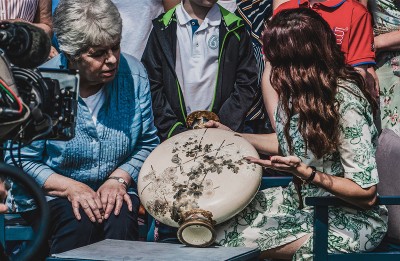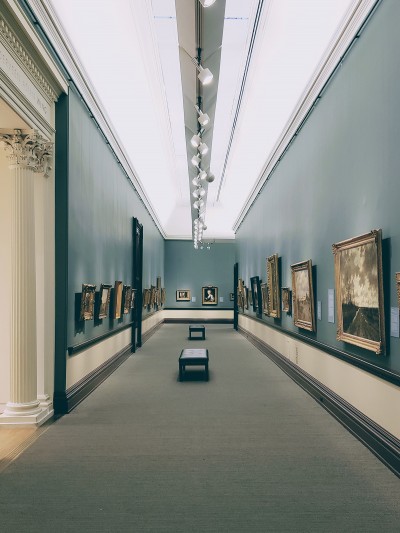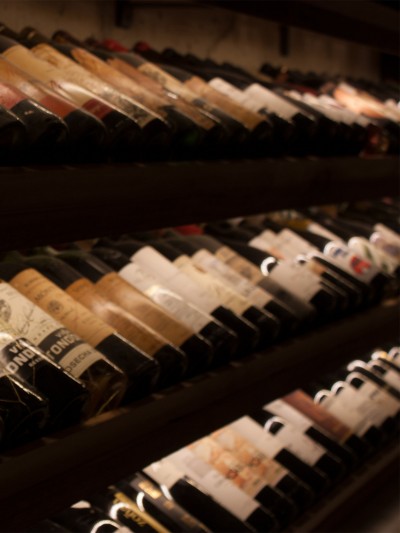Pathways to the APAC Capital Markets – the complete 2025 guide
Are you planning your next move into Asia Pacific’s capital markets? The guide below is your starting...
Are art and wine are “investments” or simply vanity purchases?
Time to read: 5 mins
Whilst the government continues to do its best to discourage residential property investment, those with some disposable income, are starting to look elsewhere to invest their money. And it seems that art, and particularly wine, is the flavour of the month.
Whether you agree or not, there is good art, and there is bad art. Likewise, there is good and bad wine. You may think it's all about individual taste, but unfortunately that's not the case! Whilst we all have preferential tastes in terms of art and particularly wine, that does not alter whether it's any good or not as an investment.
 And whilst investments in art and wine are not generally on the IRD tax radar, that might change as investors are drawn towards investments which are not subject to any capital gains type taxes.
And whilst investments in art and wine are not generally on the IRD tax radar, that might change as investors are drawn towards investments which are not subject to any capital gains type taxes.
Without even considering the tax implications of your new investment, if you are keen to dip your toe in the water in the art scene, you certainly need to know what you're doing before you start splashing your cash around. Seeking reputable expert advice is probably a starting point. But, in my view, it can take many years to build up a sufficient knowledge before you should start investing.
Now I've watched a couple of episodes of Antiques Roadshow and seen the Picasso sketch on the napkin valued at a few million pounds. (Though the one I like is the Ming Dynasty vase that apparently has been in the family for 300 years, and turns out to be some old tat made in the factory down the road a couple of months ago).
One thing I have learnt from the Antiques Roadshow is that art goes in and out of fashion. So if you purchase art now, and try to sell it in 20 years’ time to fund that world trip, and it’s out of vogue, you may have to hang onto it until you’re 112 years old before you even get your money back.
 But watching a few episodes of the Antiques Roadshow is certainly not going to make you any kind of art expert, and so I think it's very much a case of buyer beware.
But watching a few episodes of the Antiques Roadshow is certainly not going to make you any kind of art expert, and so I think it's very much a case of buyer beware.
Wine is similar, though how anyone manages to save wine and put it away in a cupboard, rather than drink it, is a mystery to me.
Wine of course is all about provenance. That is the most important part of getting into the wine investment market - and particularly the fine wine market. And certainly the case for older wine that comes up at auction.
But unless you drink the wine, how do you know if it is any good? And, if you drink the wine then it's no longer an investment I think I'm confusing myself! What is clear however is that the wine is not tested before its sold at auction, and therefore anyone investing in fine wines at the higher level, needs to ultimately trust the seller/cellar?
The word investment is an interesting one in that, to me it assumes or implies a monetary return. There is no monetary return on art or wine until you sell it. So, does that mean that an investment in art or wine is always acquired for the purpose or the intention of selling it? Notwithstanding you might like admiring it, or taking guests to your cellar, investing must mean that at some point in the future you want to realise your gain by selling?
What we do know is that anything acquired for the purpose of sale, is taxable. There are a couple of sections of the Income Tax Act that make it very clear that if you purchase either personal property or real property (land) for the purpose or intention of selling it, you will pay income tax on it. In some cases, just depending on the value and the regularity of the buying and selling, you might also need pay GST as well.
IRD has taken the view that if you invest in gold, there is no gain until you sell it. And so, by implication gold and other precious metals are “deemed" to be acquired the purpose of sale, and therefore taxable at that point. They’ve done the same with Cryptocurrencies. Interestingly, this is an area where increased investment activity has resulted in the IRD becoming very interested in realised gains.
 It seems to me that at some point there may be an argument that unless you are using and displaying your art for aesthetic purposes, investments in both art and wine, may land on the tax continuum if they are sold.
It seems to me that at some point there may be an argument that unless you are using and displaying your art for aesthetic purposes, investments in both art and wine, may land on the tax continuum if they are sold.
That might seem a little far-fetched to some, but if your art collection is stored in temperature-controlled vaults, and never sees the light of day, no return on that investment is going to be earned until it is sold. And so, does it hold that this art was purchased for aesthetic purposes, for enjoying, for displaying, for collecting? I'd be bold enough to say that this art is likely to have been acquired for its increase in value, and therefore may have been acquired for sale!
Now that is quite a claim I agree, and one to which I'm sure tax professionals will take exception. Or at least have a laugh about! However, I'm concerned that once the amateurs leave the property investment sector, they are going to look for other ways to invest their money. And seriously who would want some ugly Constable, or Turner hanging on your wall other than to show off.
What is certainly clear is that the more attention wine and art investments get, the more likely it is to come under scrutiny. There is always a young budding tax auditor out there looking to make a name for themselves.
And what of the wine cellar; your investment gathering dust, corks drying out, the control unit malfunctioning and causing large spikes in temperature. All a bit risky if you ask me. But then that opportunity to taste just one of your bottles, which has unfortunately, turned into vinegar”...
However you look at it, “bad wine is always expensive”.
DISCLAIMER No liability is assumed by Baker Tilly Staples Rodway for any losses suffered by any person relying directly or indirectly upon any article within this website. It is recommended that you consult your advisor before acting on this information.
Our website uses cookies to help understand and improve your experience. Please let us know if that’s okay by you.
Cookies help us understand how you use our website, so we can serve up the right information here and in our other marketing.